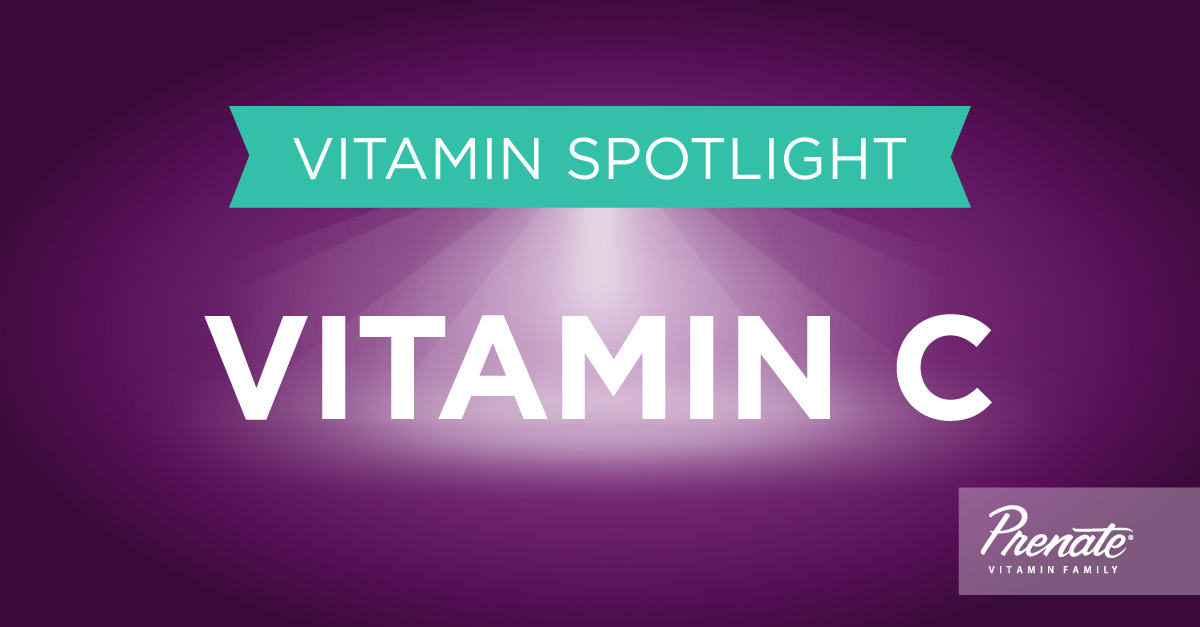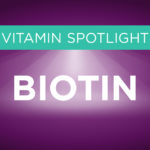Vitamin Spotlight: Benefits of Prenatal Vitamins with Vitamin C
May 20, 2015
You may think of vitamin C as the key to good health. But ascorbic acid (known as vitamin C) plays a critical role in everyday bodily processes, especially for women and teens who are pregnant or breastfeeding. In this month’s Vitamin Spotlight, we’ll examine the benefits of vitamin C as well as discuss the daily requirements.
How Much Vitamin C Do I Need?
According to the U.S. National Institutes of Health, the daily recommended amount of vitamin C depends on age and sex and whether you are pregnant or breastfeeding. For pregnant women this is about 85 mg per day. Breastfeeding mothers need around 120 mg each day.1 It is also to be considered, that if you are a smoker (which is not recommended during pregnancy or breastfeeding) that you increase your vitamin C intake by an additional 35 mg per day.
| Life Stage | Recommended Daily Intake |
| Birth to 6 months | 40 mg |
| Infants 7-12 months | 50 mg |
| Children 1-3 years | 15 mg |
| Children 4-8 years | 25 mg |
| Children 9-13 years | 45 mg |
| Teens 14-18 years (boys) | 75 mg |
| Teens 14-18 years (girls) | 65 mg |
| Life Stage | Recommended Daily Intake |
| Adults (men) | 90 mg |
| Adults (women) | 75 mg |
| Pregnant Teens | 80 mg |
| Pregnant Women | 85 mg |
| Breastfeeding Teens | 115 mg |
| Breastfeeding Women | 120 mg |
What are the Benefits of Vitamin C?
Vitamin C is one of the critical nutrients that works as an antioxidant in the body to combat free radicals and protect our cells.1 Free radicals surround us in our environment as pollution, cigarette smoke, and UV light, but they are also produced when we breakdown the food we consume into energy to use. This is where vitamin C is may be crucial, as it plays a role in healing wounds, boosting our immune system, and helping our bodies absorb iron efficiently.
How Do I Ensure I’m Getting Enough Vitamin C?
Vitamin C is a nutrient found in many different foods – most often fruits and vegetables. Citrus fruits and their juices, such as oranges, grapefruits and lemons, contain extremely high levels of vitamin C.1 Red and green peppers along with kiwis also contain a lot of the vitamin too. Many other foods including but not limited to, strawberries, cantaloupe, baked potatoes and tomatoes, also have a healthy dose of vitamin C in them. Consuming fruits and vegetables raw allows you to intake the most nutrients possible from them. Some nutrients still remain after storage or cooking, but the vitamin C content is significantly reduced.
Below are some foods that contain vitamin C and the amount you’d need each day to reach the daily recommended intake:2
8 ounces of orange juice contains 124 mg of vitamin C
1 kiwi contains 70 mg of vitamin C
1 – 1 ½ cups of sliced strawberries
½ cup of sliced strawberries contains 49 mg of vitamin C
½ cup of cantaloupe contains 29 mg of vitamin C
Prenatal Vitamins with Vitamin C
Sometimes the healthy level of vitamin C can be hard to reach with just your diet. A supplement can be helpful in achieving the healthy amount of vitamin C you need. One good way to ensure that you and your baby are getting enough vitamin C is by supplementing with a vitamin from the Prenate® Vitamin Family. These prenatal vitamins are specifically formulated to meet the nutritional needs of women who are pregnant or thinking about becoming pregnant. Ask your doctor which Prenate® vitamin is right for you. Click on the product name below to learn more about the benefits of the prenatal vitamins with vitamin C or to download special savings coupons:
- Prenate® Pixie – A small, easy-to-swallow softgel with complete prenatal nutrition support, including 350 mg of DHA
- Prenate Mini® – A Robust Rx prenatal vitamin with 11 concentrated nutrients including DHA in a tiny softgel
- Prenate® Enhance – Advanced prenatal softgel vitamin with 400 mg DHA – the highest level among leading Rx brands − plus highly absorbable forms of folate, 1,000 IU vitamin D3, Formical® calcium, and more
- Prenate® Restore – A softgel vitamin specially designed for the needs of breastfeeding mothers and babies that includes probiotics and DHA to help restore and support GI and immune health
- Prenate® Chewable – Dutch chocolate flavor chewable prenatal vitamin including high levels of calcium, vitamin D3, 1 mg folate and no vitamin aftertaste
You Are About To Leave This Website
By clicking continue, this link will take you to a website to which Alora Pharmaceuticals Policies & Terms of Use do not apply. Alora and its subsidiaries do not control the content or accuracy of third-party websites and assume no responsibility for their use.















